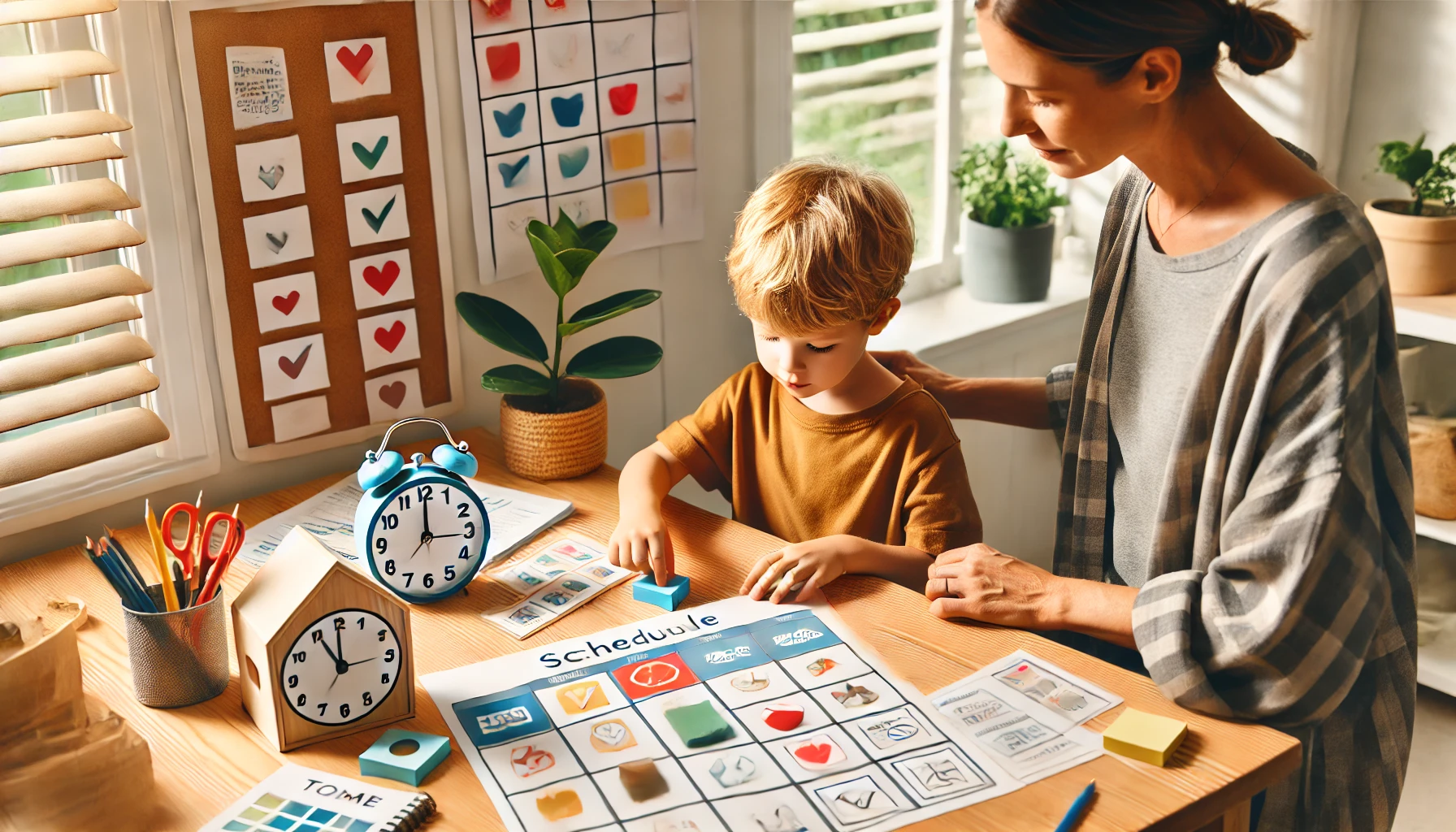How to Teach Young Children About Time Management and Routines
Helping young children understand time management and follow routines sets the foundation for responsibility, independence, and organization. When kids learn to manage their time effectively, they develop better focus, reduce frustration, and gain a sense of accomplishment. Parents can teach these skills through structured schedules, fun activities, and gentle guidance. In this article, we’ll explore practical ways to help children develop good time management habits.
Why Teaching Time Management is Important
- Encourages responsibility and independence – Helps children manage their own tasks.
- Reduces stress and frustration – Prevents rushing and last-minute struggles.
- Improves focus and organization – Teaches children how to structure their day.
- Prepares for school success – Helps kids understand schedules and deadlines.
- Develops lifelong planning skills – Builds habits that benefit them as they grow.
1. Establish a Daily Routine
A predictable routine helps children know what to expect and stay organized.
Activity Idea:
- Create a morning and bedtime checklist with pictures or stickers.
- Use a routine chart with tasks like brushing teeth, getting dressed, and packing a backpack.
- Set specific times for meals, play, and bedtime to create consistency.
What Kids Learn:
- That routines create a sense of order and stability
- How to complete daily tasks without reminders
- The importance of sticking to schedules
2. Use Visual Timers and Clocks
Young children benefit from visual cues to understand time passing.
Activity Idea:
- Use a sand timer or countdown clock for transitions like cleaning up or getting ready.
- Set a kitchen timer for activities like screen time or play breaks.
- Teach kids to read a simple analog or digital clock to recognize time.
What Kids Learn:
- How to measure and track time
- The importance of staying on schedule
- That time management helps prevent rushing
3. Break Tasks Into Small Steps
Dividing activities into smaller steps makes them easier to complete.
Activity Idea:
- Instead of saying “Get ready for bed,” break it into “First, brush your teeth. Next, put on pajamas.”
- Use a “First, Then” approach: “First we do homework, then we play outside.”
- Encourage kids to check off completed tasks on a visual to-do list.
What Kids Learn:
- How to manage big tasks in smaller steps
- That finishing small tasks leads to big achievements
- The importance of staying focused on one thing at a time
4. Teach the Concept of Prioritizing Tasks
Helping kids understand what needs to be done first builds strong planning skills.
Activity Idea:
- Ask, “What should we do first—homework or playtime?” and discuss why.
- Sort daily tasks into “must-do” (school, hygiene) and “want-to-do” (games, TV).
- Use a color-coded schedule to show priority tasks versus free time.
What Kids Learn:
- That some tasks need to be completed before others
- How to balance responsibilities with fun activities
- The importance of finishing important tasks first
5. Use Play to Teach Time Management
Games and activities help children learn about time in a fun way.
Activity Idea:
- Play “Beat the Clock”, where kids race to finish a task before a timer runs out.
- Use a stopwatch to see how long different activities take.
- Read books like What Time Is It, Mr. Crocodile? to discuss time concepts.
What Kids Learn:
- That time management can be fun
- How to estimate time for different tasks
- The importance of working efficiently
6. Encourage Independent Time Management
Teaching kids to manage their own time helps them build responsibility.
Activity Idea:
- Let children set their own alarm clock for waking up.
- Encourage packing their backpack the night before instead of rushing in the morning.
- Allow kids to schedule their own play and study time with guidance.
What Kids Learn:
- That managing time is their responsibility
- How to plan ahead to avoid stress
- The confidence to organize their own schedule
7. Praise and Reinforce Good Time Management
Recognizing effort encourages children to keep practicing.
Activity Idea:
- Say, “Great job finishing your homework before playtime!”
- Use a reward chart where kids earn stars for completing tasks on time.
- Ask, “How did it feel to have enough time for everything today?”
What Kids Learn:
- That good time management leads to more free time
- The benefits of completing tasks early instead of rushing
- That planning ahead makes life easier
8. Be Patient and Allow Flexibility
Time management is a learning process, and kids need room to improve.
Activity Idea:
- If a child struggles to stay on task, offer gentle reminders: “Let’s check the clock—how much time do we have left?”
- Allow some flexible time in the schedule for breaks or delays.
- Adjust expectations based on the child’s age and learning pace.
What Kids Learn:
- That improving time management takes practice
- The importance of flexibility when things don’t go as planned
- How to adjust schedules to fit their needs
Final Thoughts
Teaching young children about time management and routines helps them develop responsibility, organization, and independence. By creating structured schedules, using visual timers, and encouraging planning skills, parents can help children build lifelong habits of managing their time effectively.
